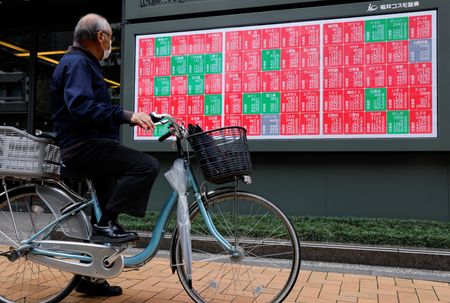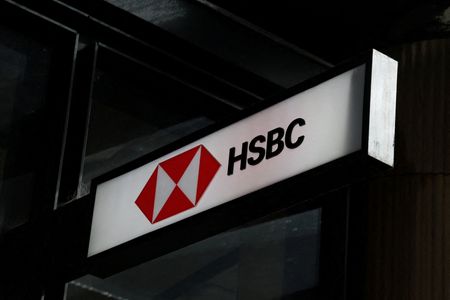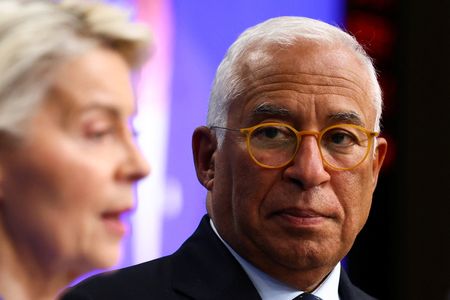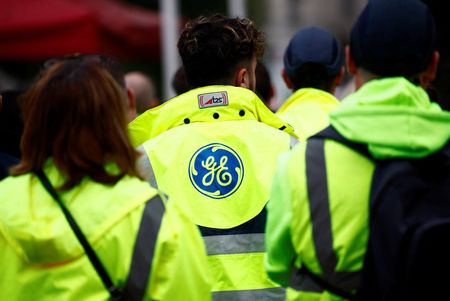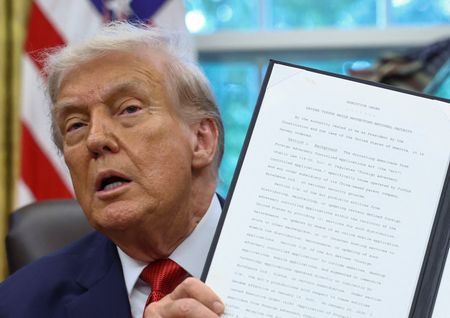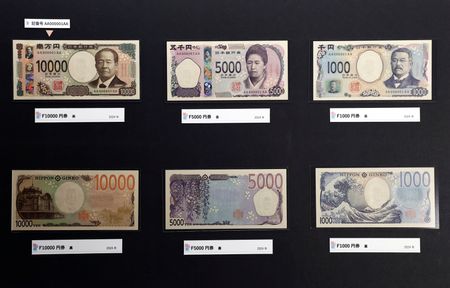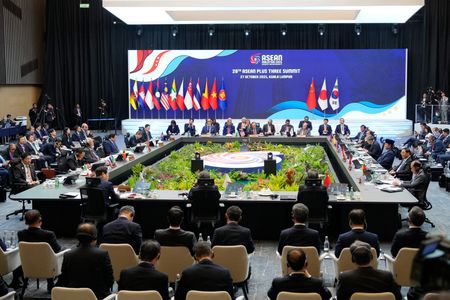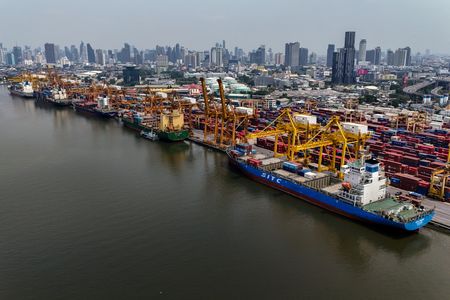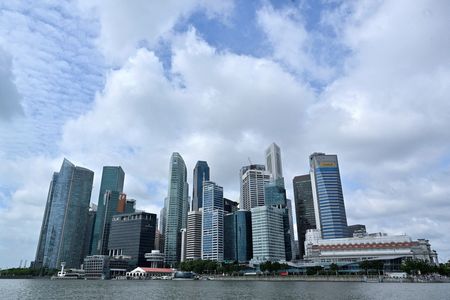By Rocky Swift
TOKYO (Reuters) -Japan’s Nikkei share average closed above the 50,000 level for the first time on Monday, continuing a run of successive records on expectations of sizeable spending from the nation’s new prime minister.
Crossing the key psychological threshold is the latest milestone for the blue-chip share gauge that has been red hot since fiscal dove Sanae Takaichi began her ascent to power earlier this month.
The Nikkei 225 Index jumped 2.46% to close at 50,512.32, bringing its year-to-date gains to 26.6%. The broader Topix rose 1.7% at 3,325.05, also a record closing high, and gained 19.4% so far this year.
The Nikkei rose 2.5% since Takaichi was elected as Japan’s first female prime minister last week.
“The leadership change has given a lot more confidence, you can see more stability, and the markets have rocketed from that,” said John Pearce, chief investment officer of Australian pension fund UniSuper.
The Nikkei’s advance was also supported by expectations for growth in U.S. AI-related firms such as chip-maker Nvidia.
Technology investor SoftBank Group rose 6.66%, to give the biggest boost to the Nikkei on Monday. Advantest, a chip-testing equipment maker and supplier for Nvidia, jumped 6.53%.
Fujikura, maker of optical fibre for data centres, rose nearly 8%.
“The market kept buying stocks. Even as the Nikkei fell after Takaichi was elected, the decline did not last long because investors who were not able to catch up with the latest rally scooped up stocks on dip,” said Hiroyuki Ueno, chief strategist at Sumitomo Mitsui Trust Asset Management.
The gauge broke through 45,000 on September 16 and has marched through successive round numbers at a rapid clip. It marks a dramatic turnaround for a long-moribund market that saw the Nikkei take 34 years to finally recover to its Bubble Economy peak in February 2024.
The index rose to the brink of 50,000 last Tuesday, when Takaichi cleared a parliamentary vote to become premier. It finished the week 3.6% higher as she pledged a proactive spending policy, with an economic stimulus package expected to exceed 13.9 trillion yen ($92.2 billion).
Japanese equities have been on the upswing since mid-July, when an electoral drubbing for the ruling Liberal Democratic Party sparked bets that fiscally hawkish Shigeru Ishiba would resign as prime minister.
Ishiba finally announced in September he would step aside, setting up a party leadership vote won by Takaichi, a devotee of the “Abenomics” stimulus policies of late premier Shinzo Abe.
Takaichi and U.S. President Donald Trump will hold a summit talk on Tuesday, having had their first call over the weekend.
($1 = 150.7800 yen)
(Reporting by Rocky Swift in Tokyo, additional reporting by Junko Fujita and Scott Murdoch in Sydney; Editing by Jacqueline Wong, Lincoln Feast, Sherry Jacob-Phillips and Harikrishnan Nair)

